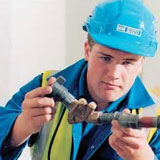LINKS
- Home
- Plumbing Apprentices Opportunities
- Plumbing Apprenticeship Programs
- Trying To Find Plumbing Apprentices
- Advantages Of Plumbing Apprenticeships
- Courses In Plumbing Apprentices
- Fast Track Plumbing Apprentices Courses
- How To Become A Plumbing Apprentice
- Plumbing Apprentices Benefits
- Plumbing Apprentices Certification
- Plumbing Apprentices Courses Online
- Plumbing Apprentices Salary
- Plumbing Apprentices School
- Plumbing Apprentices Timescales
- Plumbing Apprentices Union
How To Become A Plumbing Apprentice
If you want to learn how to become a plumbing apprentice, it is best that you find out everything that there is to know about this subject before applying for programs and getting excited about obtaining your apprenticeship card. Making the right decisions from the beginning of your career can go a long way in helping you to turn your professional life into a success; if you are looking to establish a sound reputation as a plumber, this is something that you need to take very seriously from the beginning.
There are about 4 steps that you need to follow when you are learning how to become a plumbing apprentice;
• Picking a great school
• Enrolling for an apprenticeship
• Completing the apprenticeship
• Obtaining a license
Picking the right school
One of the most important facets of learning how to become a plumbing apprentice is choosing the school through which you are going to be completing the necessary program. Most professionals will not take you on as an apprentice if you do not have the necessary training behind your name, and the school that you attend will either make it easier or more difficult for you to complete your education and enroll as an apprentice. Take some time to go through courses being offered by institutions ranging from Wyo Tech to Baltimore Community College so that you can find out what they have to offer and make a decision concerning the one that will suit your requirements best.
Enroll as an apprentice
When you are learning how to become a plumbing apprentice, you will find that you need to pick between apprenticeship programs being offered by unions and those being offered by private individuals. In most instances, trainees will pt for those that are being advertised by some of the biggest unions in the country and this is because the level of training that is obtained by these organizations is difficult to match.
Completing the apprenticeship
Since it is so difficult to obtain an apprenticeship, many people assume that once they learn how to become a plumbing apprentice and they obtain a position with a union or private company that the most difficult part is over, but this is not the case; in fact, the moment the training begins, individuals will find themselves forced to meet with the many demands that this type of program throws at them. Remember, however, that this program could very well determine your success as a professional later on, and so you need to dedicate yourself to completing it as thoroughly as possible. The rates that apprentices get for their work vary anywhere between $8.65 and $36 per hour; the amount you ask for should depend on your training, level of experience and the type of license you have.
Obtain a license
Once the apprenticeship has come to an end, you will then be able to apply for your license as a professional plumber. It is important to keep in mind, however, that you will need to write an exam that will cover everything from the plumber’s codes to general practices. Only after this exam has been written and passed can you begin advertising your services to the public and begin building your own client base in the hopes of establishing a successful business.

